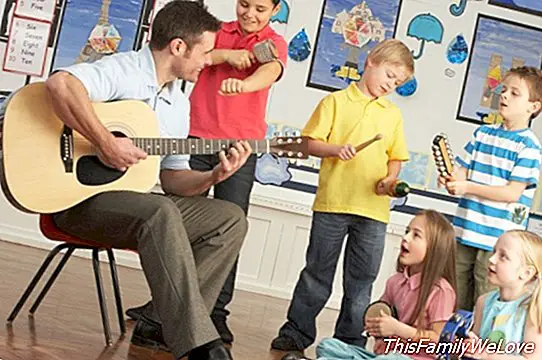The overload of extracurricular activities: reward or punishment

After a long vacation, the children return to their usual tasks: school, schedules, homework and homework. extracurricular activities. The latter are intended to occupy the child's time outside their school schedule as a complement to their development and growth.
They suppose a means in favor of the parents, that often because of the work they need a place where to leave the children, and these have the opportunity to spend the time in the company of other friends different from those of class. But do we overload the little ones with extracurriculars? And how to choose the one that best fits the child?
Psychopedagogue Mar García, of the Valencian Institute of Creative Pedagogy, explains to Thisfamilywelove that the extracurricular activities "They seek to continue with the learning of the child from a playful point of view, that is to say, it does not replace the school or the learning of school content, but rather what it seeks is a more social development of the child".
Choose the appropriate extracurricular activity
As for what extracurricular activity to choose from the almost unlimited offer that currently exists in the market, we must take into account that those that are more in line with the personality of the children or those that complement their training should be chosen. In the same way it is necessary to avoid choosing the ones that the parents would have liked to do, so that the child is not forced to fulfill the dreams or expectations of the adults.
Value of the commitment: choose the extracurricular
Although it does not happen too often, in the case that a child chooses an extra-curricular and after a time he tells us that he wants to stop attending, many parents wonder what they should do. "It is very important to teach the value of the commitment, but that can only be achieved if we have previously left the activity to the child's choice." Being his choice and having agreed with him the time, the correct thing for a good personal growth of the child would be to endure that trimester, as long as we are not facing a problem of abuse or bullying, in which case we should take other types of measures.
Avoid overloading your child with an excess of extracurricular
Although extracurricular activities have their advantages, since they are a means to complement their training, they also have their drawbacks, especially if we try to cover all the gaps that children have left free.
This eagerness to take advantage of all the possible time of the children leaves us room for something as important as playing, having fun, being with their friends or with their family. Therefore, it must be tried that the activities take away time from television, tablet or computer instead of removing it from play or from family coexistence.
On the other hand, children must attend ex-school activities with enthusiasm, because they like it and are interested, but never by obligation of parents. They must be participants in the choice of activities. These should be interested in their classes, often going to look for them or take them, asking their instructors and participating in the meetings.
When too much is demanded of the children it can be harmful. It is important not to over-program children. You have to establish priorities, because there has to be time to play, have fun, walk, draw ...
In older children, the accumulation of extracurricular activities or the dedication they need to continue as they advance levels, can remove real time study or may when the child starts to study after the extracurricular class, have gone and returned to home, be too tired to start effectively a time of concentration in need of rest.
Hobbies and hobbies must be encouraged, but it must be something that is pleasing and motivating for the child, or will cause fatigue at the time of study. It is about rationalizing and as they grow, reducing activities, staying only with what is your true hobby, or leave it for the weekends.
The extracurricular as reward or punishment
Some parents use extracurricular activities as a reward, which would not be bad at all, or as a punishment forbidding attendance, which is dangerous. Mar García says that "what we have to ask ourselves is what objective do we pursue with this action?" A punishment is not related to the behavior we want to correct and the consequence "yes." If the child suspends the 'Mates' exam because he has not studied it and We punish him without going to tennis, what does he have to do? I will not correct that behavior in this way, if the extracurricular activity is good for him, why take away that opportunity to grow? to read. 'That approach at an educational level would not be the most intelligent. " Ideally, if a child breaks some rule, the consequence is related to that behavior.
Isabel Martínez
Advice:Mar García, Psychopedagogue of the Valencian Institute of Creative Pedagogy




